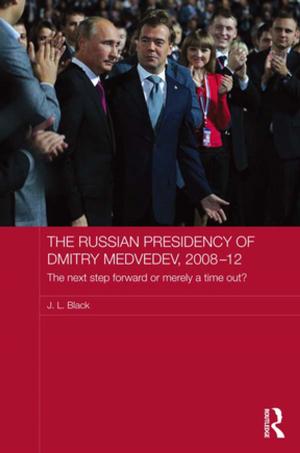A Machine That Would Go of Itself
The Constitution in American Culture
Nonfiction, Social & Cultural Studies, Social Science, Anthropology, History| Author: | Russell Fraser | ISBN: | 9781351534932 |
| Publisher: | Taylor and Francis | Publication: | July 12, 2017 |
| Imprint: | Routledge | Language: | English |
| Author: | Russell Fraser |
| ISBN: | 9781351534932 |
| Publisher: | Taylor and Francis |
| Publication: | July 12, 2017 |
| Imprint: | Routledge |
| Language: | English |
In this volume, Pulitzer Prize-winning historian Michael Kammen explores the U.S. Constitution's place in the public consciousness and its role as a symbol in American life, from ratification in 1788 to our own time. As he examines what the Constitution has meant to the American people (perceptions and misperceptions, uses and abuses, knowledge and ignorance), Kammen shows that although there are recurrent declarations of reverence most of us neither know nor fully understand our Constitution. How did this gap between ideal and reality come about? To explain it, Kammen examines the complex and contradictory feelings about the Constitution that emerged during its preparation and that have been with us ever since. He begins with our confusion as to the kind of Union we created, especially with regard to how much sovereignty the states actually surrendered to the central government. This confusion is the source of the constitutional crisis that led to the Civil War and its aftermath. Kammen also describes and analyzes changing perceptions of the differences and similarities between the British and American constitutions; turn-of-the-century debates about states' rights versus national authority; and disagreements about how easy or difficult it ought to be to amend the Constitution. Moving into the twentieth century, he notes the development of a "cult of the Constitution" following World War I, and the conflict over policy issues that persisted despite a shared commitment to the Constitution.
In this volume, Pulitzer Prize-winning historian Michael Kammen explores the U.S. Constitution's place in the public consciousness and its role as a symbol in American life, from ratification in 1788 to our own time. As he examines what the Constitution has meant to the American people (perceptions and misperceptions, uses and abuses, knowledge and ignorance), Kammen shows that although there are recurrent declarations of reverence most of us neither know nor fully understand our Constitution. How did this gap between ideal and reality come about? To explain it, Kammen examines the complex and contradictory feelings about the Constitution that emerged during its preparation and that have been with us ever since. He begins with our confusion as to the kind of Union we created, especially with regard to how much sovereignty the states actually surrendered to the central government. This confusion is the source of the constitutional crisis that led to the Civil War and its aftermath. Kammen also describes and analyzes changing perceptions of the differences and similarities between the British and American constitutions; turn-of-the-century debates about states' rights versus national authority; and disagreements about how easy or difficult it ought to be to amend the Constitution. Moving into the twentieth century, he notes the development of a "cult of the Constitution" following World War I, and the conflict over policy issues that persisted despite a shared commitment to the Constitution.















